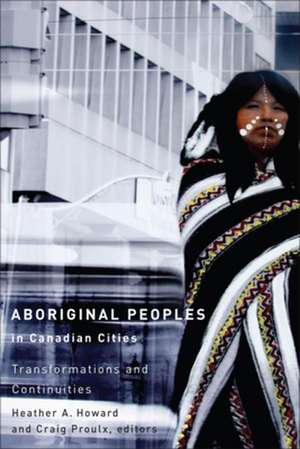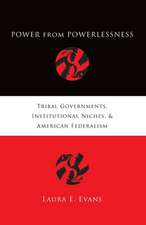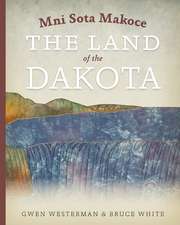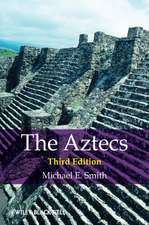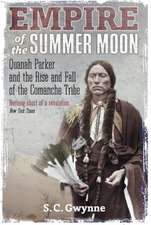Aboriginal Peoples in Canadian Cities: Indigenous Studies
Editat de Heather A. Howard, Craig Proulxen Limba Engleză Paperback – 31 mar 2011
Neoliberalism and the Urban Aboriginal Experience: A Casino Rama Case Study
Darrel Manitowabi
Casino Rama, located on the Mnjikaning First Nation near Orillia, Ontario, was lauded as an 'Aboriginal' solution to Aboriginal poverty within the framework of neoliberal reform led by Ontario in the 1990s. However, as a consequence of latent colonial membership structures and of disparities and social divisions generated by the casino, many Aboriginal casino workers have taken up residence in the city of Orillia. This chapter examines the challenges and particularities of the urban Aboriginal experience of these workers as conditioned by the interactions of Aboriginal symbolic capital and neoliberalism.
Preț: 289.68 lei
Nou
55.43€ • 58.03$ • 45.86£
Carte tipărită la comandă
Livrare economică 07-21 aprilie
Specificații
ISBN-10: 1554582601
Pagini: 264
Ilustrații: b/w illus
Dimensiuni: 218 x 145 x 20 mm
Greutate: 0.39 kg
Editura: Wilfrid Laurier University Press
Seria Indigenous Studies
Recenzii
"the spread of topics is considerable and their conceptual grounding offers potential for future theoretical development through comparative research. This is a valuable collection which effectively achieves its purpose of demonstrating the agency of urban Aboriginal communities, their diversity and the contribution of cultural innovations to contemporary urban indigeneity." - Roy Todd, University of Leeds, British Journal of Canadian Studies Vol. 25 No.1 2012
Cuprins
Table of Contents for
Aboriginal Peoples in Canadian Cities: Transformations and Continuities, edited by Heather Howard and Craig Proulx
Transformations and Continuities: An Introduction | Heather A. Howard and Craig Proulx
Urban Life: Reflections of a Middle-Class Indian | David R. Newhouse
Nomadic Legacies and Contemporary Decision-Making Strategies between Reserve and City | Regna Darnell
The Papaschase Band: Building Awareness and Community in the City of Edmonton | Jaimy L. Miller
"Regaining the childhood I should have had": The Transformation of Inuit Identities, Institutions, and Community in Ottawa | Donna Patrick, Julie-Ann Tomiak, Lynda Brown, Heidi Langille, and Mihaela Vieru
The Friendship Centre: Native People and the Organization of Community in Cities | Heather A. Howard
Neoliberalism and the Urban Aboriginal Experience: A Casino Rama Case Study | Darrel Manitowabi
Challenges to and Successes in Urban Aboriginal Education in Canada: A Case Study of Wiingashk Secondary School | Sadie Donovan
A Critical Discourse Analysis of John Stackhouse's "Welcome to Harlem on the Prairies" | Craig Proulx
Urban Aboriginal Gangs and Street Sociality in the Canadian West: Places, Performances, and Predicaments of Transition | Kathleen Buddle
"Why Is My People Sleeping?": First Nations Hip Hop between the Rez and the City | Marianne Ignace
Plains Indian Ways to Inter-tribal Cultural Healing in Vancouver | Lindy-Lou Flynn
Contributors
Index
Contributors' Biographies
Lynda Brown was born in Nunavut, and her family originates from Pangnirtung and Scotland. She lived mainly in Alberta and Ontario while growing up. Upon graduating from Trent University with an Honours B.A. in Native studies and psychology, she moved to Ottawa. Lynda volunteers her time, focusing on Inuit women, children and affordable housing. Lynda is a traditional throat singer and drummer, and shares her cultural knowledge through demonstrations and workshops.
Kathleen Buddle is an associate professor of anthropology at the University of Manitoba. Her research addresses First Nations media activism in Canada; cultural performance and politics in urban Aboriginal localities; Native street gangs, the manufacturing of prairie lawlessness and disciplining of the bodies of criminal others; and the authorizing of new social categories by Native women's organizations as they struggle to shift public debates about Native families onto more productive terrain.
Regna Darnell is Distinguished University Professor of Anthropology and First Nations Studies at the University of Western Ontario and holds a cross-appointment in ecosystem health in the Schulich School of Medicine and Dentistry. She has published widely in First Nations languages and cultures, especially Anishinaabeg and Plains Cree.
Sadie Donovan is a Ph.D. student of Anglo-Celtic settler ancestry. She is completing her degree at Simon Fraser University in British Columbia and is interested in research pertaining to the equitable education of Aboriginal youth.
Lindy-Lou Flynn is a cultural anthropologist who has conducted fieldwork in Aboriginal communities for over twenty years, primarily in western Canada. Her focus is on the healing and empowerment movement initiated by Native people in their ongoing recovery from colonialism. She is a full-time instructor of anthropology and Native studies at Keyano College in Fort McMurray, Alberta.
Marianne Boelscher Ignace teaches at Simon Fraser University. Her interests include the politics and negotiation of meaning in indigenous-language discourse and knowledge systems, including ecological knowledge. She has carried out long-term collaborative ethnographic and linguistic research with the Secwepemc and Haida peoples, which has resulted in various monographs, journal articles, and book contributions.
Heather A. Howard teaches at Michigan State University and is affiliated faculty with the Centre for Aboriginal Initiatives at the University of Toronto. Her research examines the politics of knowledge production and practice in community-based health education, social service delivery, and indigenous historiographies of urban space. She is the co-editor of Feminist Fields: Ethnographic Insights (1999) and Keeping the Campfires Going: Native Women's Activism in Urban Areas (2009).
Heidi Langille, with roots in Nunatsiavut (Northern Labrador), has been a "life-long Urban Inuk." She has travelled across the North in different capacities, meeting new people and learning from them. Heidi volunteers her time, with a focus on children and affordable housing. She has given many presentations and interactive demonstrations on Inuit culture, heritage, values, and beliefs, including traditional throat singing.
Darrel Manitowabi is an assistant professor of Native studies at the University of Sudbury College, Laurentian University. He is a citizen of the Wikwemikong Unceded First Nation and currently resides on the Whitefish River First Nation. Manitowabi's research interests include indigenous well-being, indigenous anthropology, Anishinabe Kendasawin (Ojibwa knowledge), and indigenous-state relations.
Jaimy L. Miller is from Edmonton, Alberta, and is a descendent of the Papaschase Band. She completed her M.A. in anthropology in 2006 and her master of public administration in 2010. She is currently working in the field of Aboriginal relations in Edmonton.
David Newhouse is Onondaga from the Six Nations of the Grand River near Brantford, Ontario. He is chair of the Department of Indigenous Studies at Trent and an associate professor in the Business Administration Program. His research interests focus on the development of modern Aboriginal society. He visits Starbucks as often as possible.
Donna Patrick is a professor in the School of Canadian Studies and the Department of Sociology and Anthropology at Carleton University, Ottawa. Her current research focuses on urban Inuit and more specifically on Inuit literacies and community-based activities, which connect Inuit in Ottawa to the arctic. Other interests include indigenous rights and language rights, and language endangerment discourse, including the political, social, and cultural aspects of language use among indigenous peoples in Canada.
Craig Proulx is an associate professor in the Department of Anthropology at St. Thomas University in Fredericton, New Brunswick. His research focuses on Aboriginal peoples in Canada (urban and rural), legal anthropology, anthropology of sport, anthropology of media, and critical discourse analysis. His book Reclaiming Aboriginal Justice, Identity and Community is based on fieldwork with the Community Council Project in Toronto.
Julie Tomiak is a Ph.D. candidate in Canadian Studies, with a specialization in political economy, at Carleton University. Her research focuses on the changing relationships between indigeneity, space, public policy, and rights. Her dissertation examines how neoliberal state rescaling and indigenous struggles for self-determination intersect in Ottawa and Winnipeg.
Mihaela Ecaterina Vieru is a Ph.D. candidate in the program of Canadian Studies, with a specialization in political economy, at Carleton University, Ottawa. She has an M.A. degree in Canadian studies from Carleton University (2006). Her research interests focus on ethnicity, multiculturalism, integration, citizenship, and national security in Canadian and international contexts.
